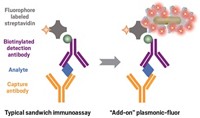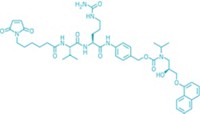Advertisement
Grab your lab coat. Let's get started
Welcome!
Welcome!
Create an account below to get 6 C&EN articles per month, receive newsletters and more - all free.
It seems this is your first time logging in online. Please enter the following information to continue.
As an ACS member you automatically get access to this site. All we need is few more details to create your reading experience.
Not you? Sign in with a different account.
Not you? Sign in with a different account.
ERROR 1
ERROR 1
ERROR 2
ERROR 2
ERROR 2
ERROR 2
ERROR 2
Password and Confirm password must match.
If you have an ACS member number, please enter it here so we can link this account to your membership. (optional)
ERROR 2
ACS values your privacy. By submitting your information, you are gaining access to C&EN and subscribing to our weekly newsletter. We use the information you provide to make your reading experience better, and we will never sell your data to third party members.
Analytical Chemistry
Antibody-Free Peptide Analysis
Method enriches and detects low-abundance peptides in blood samples
by Celia Henry Arnaud
September 10, 2012
| A version of this story appeared in
Volume 90, Issue 37
A newly designed quantitative method allows researchers to enrich and detect low-abundance proteins in serum and plasma without the use of antibodies, which are expensive and difficult to develop (Proc. Natl. Acad. Sci. USA, DOI: 10.1073/pnas.1204366109). Wei-Jun Qian of Pacific Northwest National Laboratory and coworkers developed an approach they call PRISM, which combines high-pressure, high-resolution separations with intelligent selection and multiplexing strategies for mass spectrometric analysis. They first separate a peptide mixture into 96 fractions using reversed-phase capillary liquid chromatography. They next pick out target fractions using selected reaction monitoring (SRM) mass spectrometry of isotope-labeled synthetic peptide internal standards. The internal standards help them select fractions containing the peptides they’re looking for. Multiple targeted fractions with different elution times are then recombined for conventional LC-SRM analysis. Qian and coworkers were able to quantify proteins in the 50 to 100 pg/mL concentration range without the need for affinity-enrichment reagents. They used the method to quantify prostate-specific antigens in serum samples and in a prostate cancer cell line; their results correlate with those from standard clinical immunoassays.




Join the conversation
Contact the reporter
Submit a Letter to the Editor for publication
Engage with us on Twitter